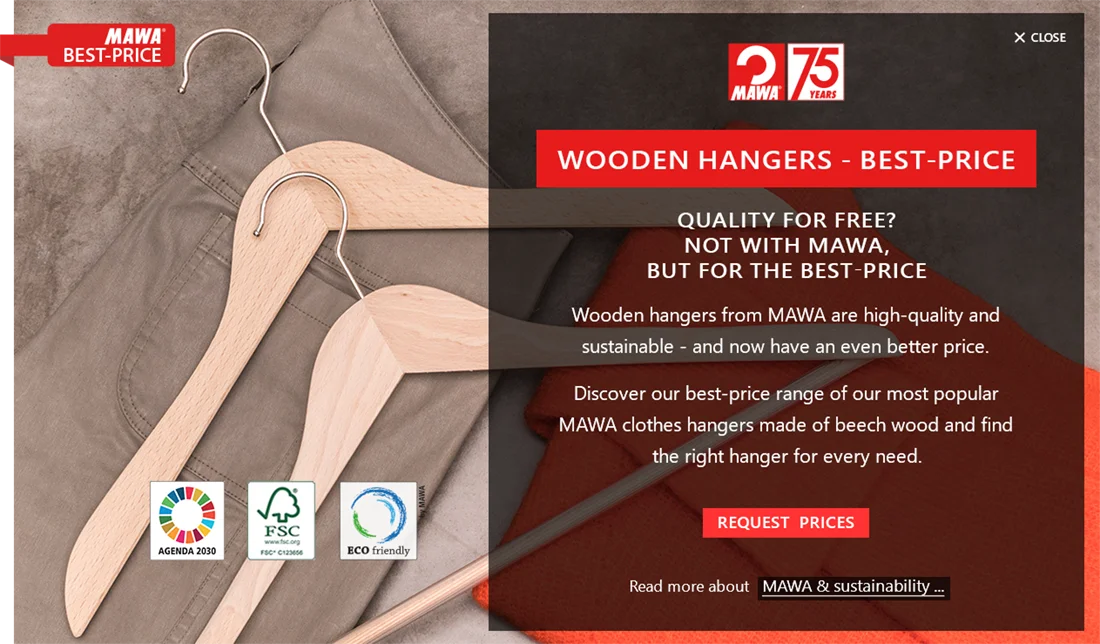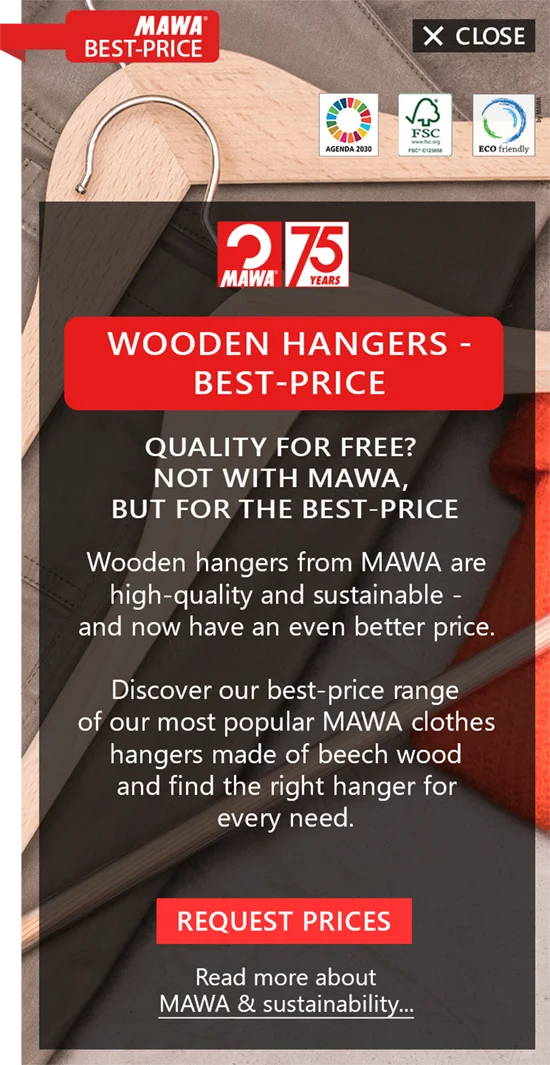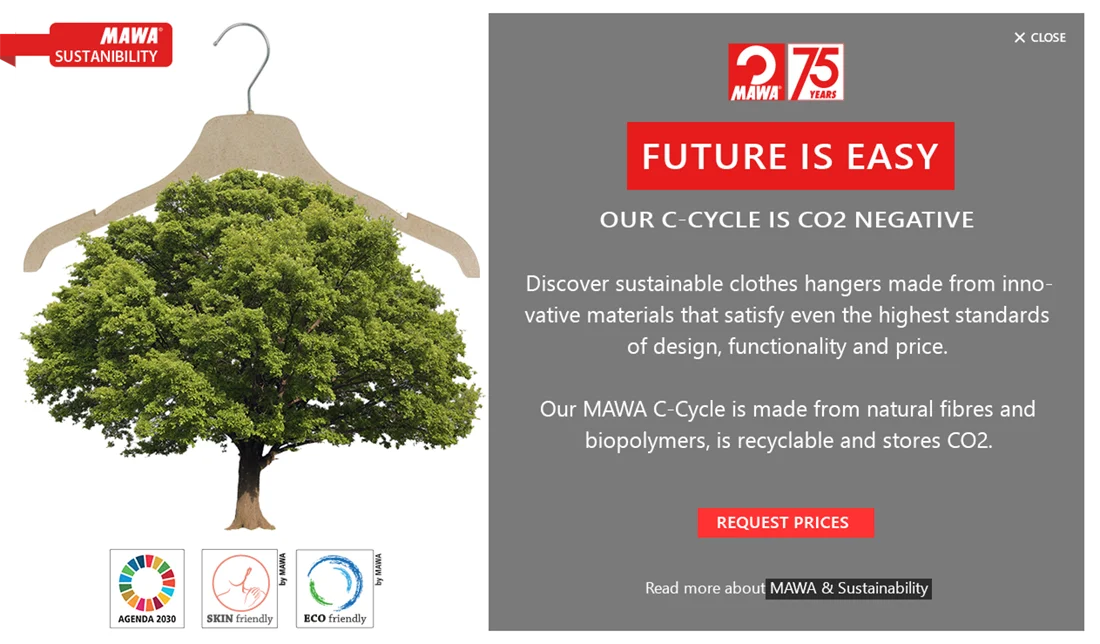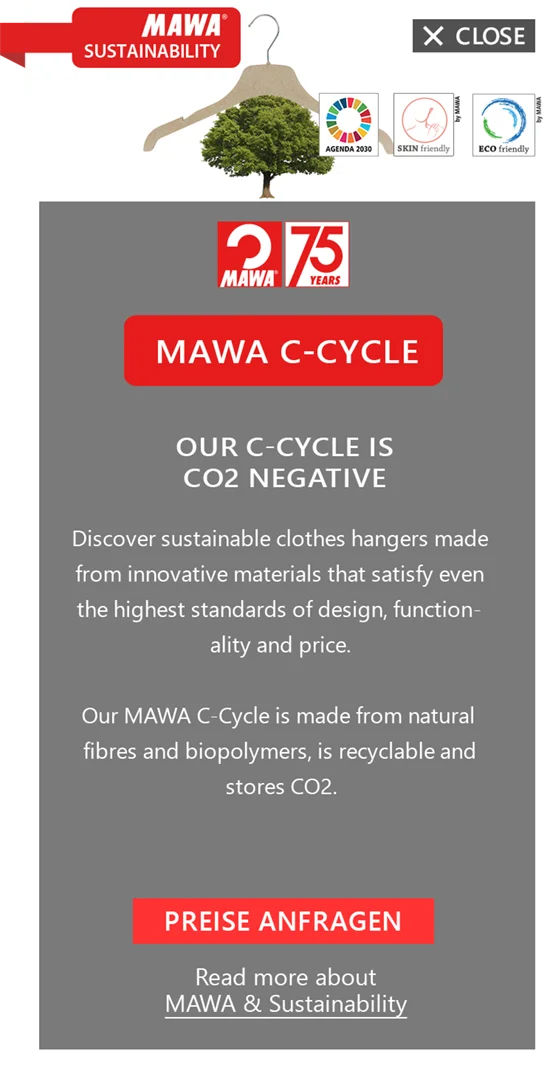Michaela Schenk - MAWA CEO, visionary and much more
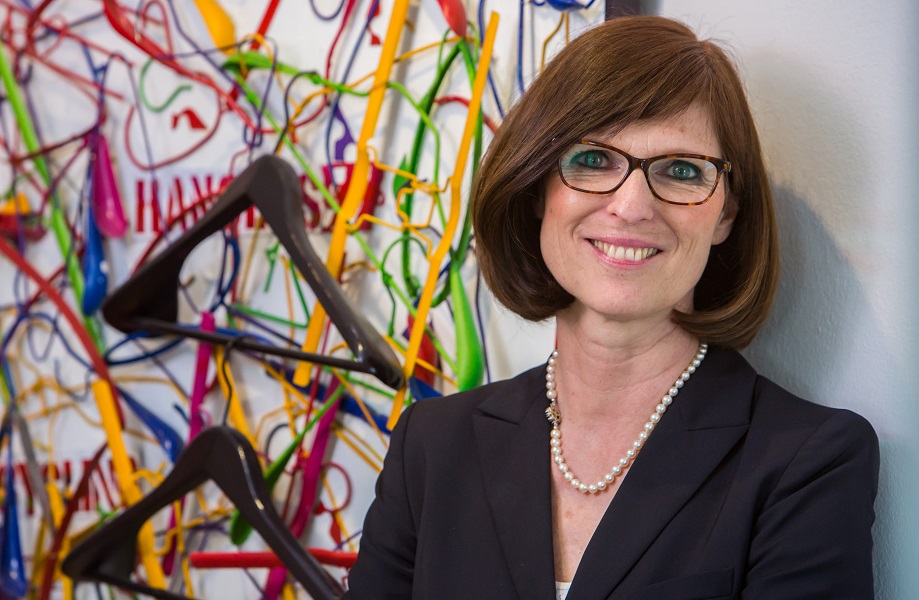
In our article you will learn more about our power CEO Michaela Schenk, who slips into the most diverse roles as managing director, mother, leader, innovator, visionary, pacesetter and much more every day.
This interview is an excerpt from Semir Fersadi's "punktgenau" podcast, which you can listen to in full (in German) here.
Mixed teams, a clear vision and consistent storytelling
Michaela Schenk considers these three points to be essential for leading a company successfully into the future. Success proves her right: in twelve years she has not only led the clothes hanger manufacturer MAWA out of insolvency, but also established it as a brand in over 80 countries and made it one of the 100 most innovative companies in Germany. I spoke to her about the company's past and future.
How did you fare as a female manager, Ms. Schenk?
First of all, I've always been called a bad mother because I wanted to balance my children and my job. And as a female manager, I found it very difficult at times to deal almost exclusively with men – as a woman you fight more for the cause than for power. I often didn't have such an easy time of it in all these men's clubs.
How did you then pursue the topic of equality in your company?
I made sure that there are just as many women as men in management positions at MAWA. I have always campaigned for the advancement of women in other ways, too – which also means compromises on the entrepreneurial side. We currently have 68 percent women in the company - for this, for example, appropriate shift models are required. Here, for example, we introduced part-time shifts for mothers at MAWA.
As a businesswoman, I am of course also interested in the development of MAWA - what were the reasons for the takeover twelve years ago and where is the company today?
At the time, many advised me not to take it on because MAWA was insolvent and therefore a major challenge. But I wanted to implement everything I had previously learned in within other companies - and I immediately had a vision for MAWA. My goal was to turn the clothes hanger company into a brand like Tempo and develop it into an international player. Today we are growing in double digits every year - even in times of Corona.
What personal and professional skills did you use to achieve this?
You should never be satisfied with things, you have to constantly set yourself new goals and never lose sight of them - this is the only way to keep developing. In addition, I generally don't go it alone, I always include my employees and their different perspectives. And of course, with every setback, you have to get up and keep going.
Has your work also influenced the culture in the company?
Certainly. It is very important to me to remain in an active exchange of opinions without overdebating. I also appreciate the openness to discuss controversial issues without taking it personally. Different opinions serve the cause and do not attack the person. This is the only way to have a good exchange and move the company forward.
What's next? Where do you see MAWA in 2030?
My top priority is the company's CO2 neutrality. In addition, it is of course important to keep an eye on changes in the markets. For example, I am convinced that in 2030 we will have a completely different brick-and-mortar retail trade that will move more in the direction of showrooms. For us, this means a reduction in the number of hangers in the stores. In addition, thanks to online trading, we will have less to do with middlemen and more with end customers. That's why we're completely repositioning ourselves in the European area, in the international area we will continue to need intermediaries because of the cultural differences. Digitization and sustainability will be our big topics in the coming years.
Finally: In your opinion, what should companies bring with them in order to arrive successfully in 2030?
The speed of change is increasing, innovation cycles are becoming ever shorter - speed and flexibility are therefore essential. It is important to keep your finger on the pulse, recognize trends and examine their importance for your own business model. I need product benefits and strong USP, otherwise I'll always be cannibalized by the price.
A woman as strong and diverse as her hangers - that is Michaela Schenk.


